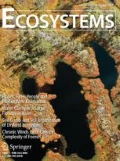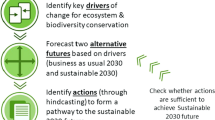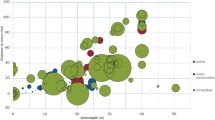Abstract
The field of resource management integrates human and ecological systems. It is currently undergoing a difficult transition as it broadens to accommodate new values and interests. Some of the problems associated with this transition are evident in marine ecosystems, where the management of the ecological–human interface has been hindered by a lack of basic understanding. Using marine fisheries as examples, this paper describes the proximate and underlying causes of the human–ecological problem. It identifies areas in which basic research is needed on the behavioral dynamics of marine resource use, including incentives, feedbacks, management scale, monitoring and evaluation, alternative management approaches, the role of history, and human capital. It discusses the cost of failing to invest in social science research and identifies barriers to interdisciplinary research. Priorities for interdisciplinary research are listed.
Similar content being viewed by others
Author information
Authors and Affiliations
Additional information
Received 30 November 2000; accepted 20 April 2001.
Rights and permissions
About this article
Cite this article
Hanna, S. Managing the Human–Ecological Interface: Marine Resources as Example and Laboratory. Ecosystems 4, 736–741 (2001). https://doi.org/10.1007/s10021-001-0042-z
Published:
Issue Date:
DOI: https://doi.org/10.1007/s10021-001-0042-z




